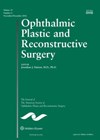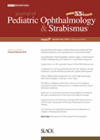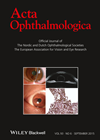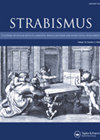You searched for "Wales"
Refresh for ABDO College common room thanks to Millmead Optical Group
Students at ABDO College will be able to relax in comfort and enjoy a refreshed common room thanks to Millmead Optical Group.Revision of orbital fracture repairs
This is a retrospective review of 13 patients with sub-optimal outcomes following primary orbital fracture repairs who underwent revision surgery. All had fractures of the orbital floor, with four involving other orbital walls, and six also involving other facial bones....Spot screen versus cycloplegic refraction
5 April 2022
| Fiona Rowe (Prof)
|
Paediatric Ophthalmology / Strabismus
This study compared the spherical, cylindrical and spherical equivalent values obtained by the Spot screener before and after induction of cycloplegia with the values of cycloplegic refraction to explore the application value of the Spot screener in refractive error screening...
Climatic droplet keratopathy
1 December 2015
| Bheemanagouda Patil
|
EYE - Cornea, EYE - General
|
UV-B, ascorbate, environment, human, keratopathy
Climatic droplet keratopathy (CDK) is an acquired and potentially handicapping corneal degenerative disease that is highly prevalent in certain rural communities around the world. It predominantly affects males in their 40’s and is known by many other names such as...
Outcomes of suture-less vs. sutured wound closure for paediatric cataract surgery
6 February 2024
| Fiona Rowe (Prof)
|
Paediatric Ophthalmology / Strabismus
In this study the authors aimed to compare the incidence of postoperative complications between cases of suture-less and sutured wound closure in paediatric cataract surgery. This was a retrospective study of children aged <18 years and included 116 eyes of...
Adaptive optics imaging: resolving single cells in the living eye
1 June 2014
| Michel Michaelides (Prof), Adam Dubis
|
EYE - Cornea
The human retina is unique in the central nervous system (CNS) in that it can be directly visualised non-invasively. Technological advances of several imaging modalities, including optical coherence tomography (OCT), multichannel scanning laser ophthalmoscopy (SLO) and fundus photography, have afforded...
Do you have four minutes? Glaucoma service questionnaire.
Please take four minutes to complete this questionnaire which aims to examine the role of healthcare professionals for care provision within the glaucoma service.East Bound and Down: Patrick Staropoli
2 August 2024
| Peter Cackett
|
EYE - General
One of my heroes growing up in the 70s was the iconic Formula 1 racing driver, James Hunt. At the time, if you had asked me and my primary school friends what we would most like to do for a...
East Bound and Down: Patrick Staropoli
2 August 2024
| Peter Cackett
|
EYE - General
One of my heroes growing up in the 70s was the iconic Formula 1 racing driver, James Hunt. At the time, if you had asked me and my primary school friends what we would most like to do for a...
Ocular bubbly: a vitreoretinal update on the art of gases
5 April 2022
| Adonis El Salloukh, Alexander Chiu, Sidath Wijetilleka
|
EYE - Vitreo-Retinal, EYE - General
The authors remind us of the revolutionary impact gases have had on retinal surgery. In 1938, Rosengren attempted to improve his retina repair surgical outcomes [1]. He discovered that suturing the retina or pressing externally on the sclera were not...
Brain abnormality as risk factor for consecutive exotropia
4 February 2021
| Fiona Rowe (Prof)
|
Paediatric Ophthalmology / Strabismus
|
Infantile esotropia, consecutive exotropia, magnetic resonance imaging, strabismus surgery, white matter damage of immaturity
The authors evaluated and compared the cerebral MRI findings in operated infantile esotropia cases with and without consecutive exotropia. This was a retrospective study of 28 patients. Group 1 had 17 cases of consecutive exotropia with a mean follow-up of...
An update on inherited retinal disorders (part 1) – overview and assessment of inherited retinal disease
1 October 2016
| Michel Michaelides (Prof)
|
EYE - Vitreo-Retinal
Part 2 of this topic can be found here Inherited Retinal Disease (IRD) is the leading cause of blindness certification in the working age population (age 16-64 years) in England and Wales and the second most common in childhood [1]....







